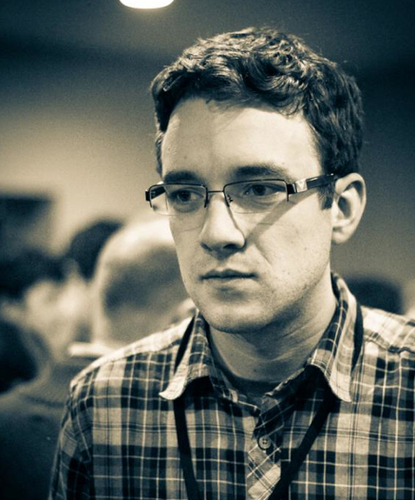Get Out of My Face! Anxious People Need More Personal Space

Everybody has a "personal space," or a protective invisible bubble around their body to keep themselves safe from unwanted intrusions — like flying shoes, or perhaps close-talkers.
But how big is this space? A new study shows that the size of the space varies among people, but generally has a boundary that begins 8 to 16 inches (20 to 40 centimeters) in front of the face.
The researchers also found that anxious people tend to need a larger personal space, according to a study published today (Aug. 27) in The Journal of Neuroscience.
"There is a pretty robust correlation between the size of the personal space and the level of anxiety of the subject," said study researcher Giandomenico Iannetti, a neuroscientist at the University College London. [Why Do People Have Personal Space?]
Get out of my face
The results seem logical — one can imagine that an anxious person would be less inclined to want to cram into a crowded subway car or a packed party, said Michael Graziano, a researcher at Princeton University who wasn't involved in the study. But the relationship has never been so clearly shown and quantified as in the new study, Graziano told LiveScience.
In the study, the researchers attached electrodes that delivered small electric shocks to the hands of 15 healthy people. Each participant was also outfitted with a device that measured the electrical activation of the muscles used to blink, a classic defensive reaction.
Sign up for the Live Science daily newsletter now
Get the world’s most fascinating discoveries delivered straight to your inbox.
During the experiments, the participants held out one hand at varying distances from their face, and received a shock, while the scientists measured how strongly the participants blinked in response.
They found "a sudden increase in the magnitude of the [blinking] reflex when the stimulus gets to a certain distance from the eye," Iannetti said.
This sudden increase occurred at a distance further from the face for people in the study who rated themselves as having higher levels of anxiety, compared with those who rated themselves as having less anxiety.
Blinking is a reflex, an ultraquick reaction caused by signals traveling from the brain stem straight to muscles, bypassing the cerebral cortex, where conscious thought occurs, Iannetti said. In the study, the position of the hand changed the strength of the reflex — once the hand was within a person's "personal space," the strength of the reaction increased, Iannetti said.
This shows that the cortex is capable of tweaking activity, even if it is being bypassed, he said.
There is also a secondary zone, within a few inches of the face, where the reflex is even more pronounced, but not by much, Iannetti added.
This result — that reflex strength increases as the hand becomes closer to the face— "very nicely shows how vision, touch, posture and movement all work together extremely quickly and in close coordination … in controlling movement and defending the body," said Nicholas Holmes, a researcher at the University of Reading in England who wasn't involved in the study.
The "flight zone"
Researchers have been studying personal space for nearly a century, Graziano said. The research began with prey animals, examining their so-called flight zone. An anxious zebra, for example, might have a larger flight zone than an average zebra, within which it won't let a lion approach, he said.
In the cases of both anxious people and the jumpy zebras, a larger personal space allows an organism to be more aware of potential threats to its well-being and survival. But especially in the case of modern humans, this system can go haywire and may play a role in disorders such as claustrophobia or agoraphobia, Graziano said.
Between cultures, the idea of personal space varies wildly, Graziano said. Culture is just one the many forces affect personal space, he added.
Personal space also plays into relationships. One of the ways people test trust in their partner is by getting into their partner's personal space, Graziano said. "You show how much you are comfortable with them by how much you're willing to shrink your personal space, sometimes down to nothing," he said.
Email Douglas Main or follow him on Twitter or Google+. Follow us @livescience, Facebook or Google+. Article originally on LiveScience.










